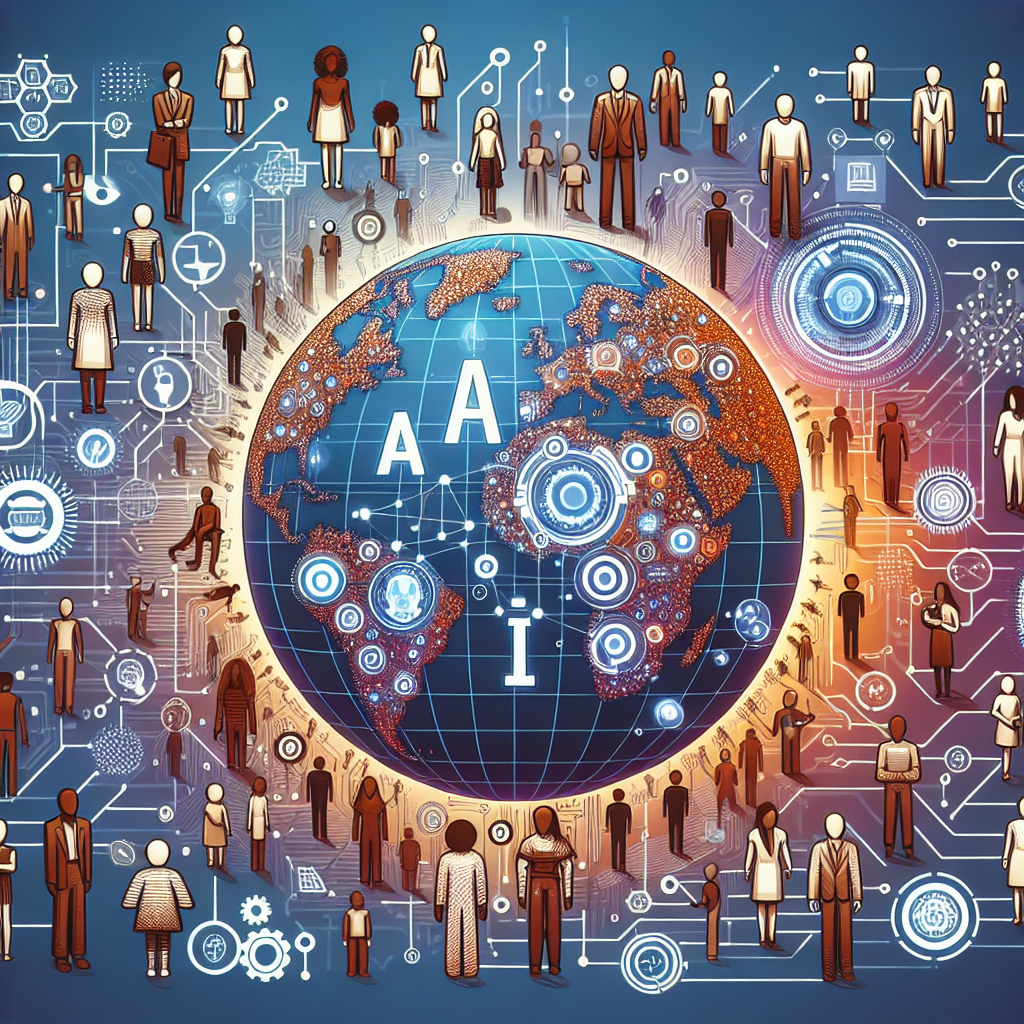AI for All: The Democratization of Technology
Artificial Intelligence (AI) has been a buzzword in the tech industry for years, but what does it really mean for the average person? In recent years, AI has been making its way into various aspects of our lives, from smart home devices to self-driving cars. However, there is a growing movement towards democratizing AI technology, making it accessible to everyone, not just large corporations and tech giants. This democratization of technology has the potential to revolutionize the way we live, work, and interact with the world around us.
What is AI for All?
AI for All is a movement that aims to make AI technology accessible to everyone, regardless of their technical expertise or financial resources. The goal is to empower individuals and organizations to harness the power of AI to solve real-world problems and drive innovation. This democratization of technology is important because AI has the potential to transform industries and improve the quality of life for people around the world. By making AI more accessible, we can ensure that everyone has the opportunity to benefit from its potential.
One of the key aspects of AI for All is education and training. Many organizations are offering online courses, workshops, and resources to help people learn about AI and how to use it in their own projects. By providing these resources, individuals can develop the skills they need to leverage AI technology and create innovative solutions. Additionally, AI for All initiatives are working to make AI tools and platforms more user-friendly and intuitive, so that even those without a technical background can easily use them.
Another important aspect of AI for All is inclusivity. Many AI technologies are biased and perpetuate existing inequalities, such as racial and gender biases. By democratizing AI technology, we can ensure that these biases are addressed and that AI is used in a fair and ethical manner. This requires diverse perspectives and voices to be included in the development and deployment of AI technologies, so that they reflect the needs and values of all people.
How is AI democratized?
There are several ways in which AI technology is being democratized. One way is through open-source software and tools. Many AI frameworks, libraries, and platforms are available for free or at a low cost, allowing individuals and organizations to access and use them without having to pay exorbitant fees. This open-source approach also encourages collaboration and innovation, as developers can contribute to and improve upon existing AI technologies.
Another way that AI is being democratized is through cloud computing. Many cloud service providers offer AI services and tools that can be accessed through a web browser, without the need for expensive hardware or technical expertise. This allows even small businesses and individuals to leverage AI technology for their own projects, without having to invest in costly infrastructure.
Furthermore, AI for All initiatives are working to create a more diverse and inclusive AI workforce. By providing education and training opportunities for underrepresented groups, such as women and minorities, we can ensure that a wider range of perspectives are included in the development and deployment of AI technologies. This diversity is crucial for creating AI systems that are fair, unbiased, and ethical.
What are the benefits of democratizing AI?
There are many benefits to democratizing AI technology. One of the key benefits is increased innovation. By making AI technology more accessible, we can empower individuals and organizations to experiment with new ideas and develop innovative solutions to complex problems. This can lead to breakthroughs in healthcare, education, transportation, and other industries, improving the quality of life for people around the world.
Another benefit of democratizing AI is economic growth. By providing opportunities for individuals and businesses to leverage AI technology, we can create new jobs and industries, driving economic growth and prosperity. This can help to reduce inequalities and empower individuals to build successful careers in the tech industry.
Additionally, democratizing AI can help to address societal challenges, such as climate change, poverty, and healthcare disparities. By harnessing the power of AI technology, we can develop solutions to these pressing issues and create a more sustainable and equitable world.
FAQs
Q: How can I learn more about AI and how to use it in my own projects?
A: There are many online courses, workshops, and resources available to help you learn about AI and how to use it in your own projects. Websites like Coursera, Udemy, and edX offer a wide range of courses on AI, machine learning, and data science. Additionally, many tech companies and organizations offer free resources and tutorials to help you get started with AI technology.
Q: What are some examples of AI technologies that are being democratized?
A: Some examples of AI technologies that are being democratized include natural language processing tools, image recognition software, and predictive analytics platforms. These technologies can be used in a wide range of applications, from customer service chatbots to medical diagnostics to financial forecasting.
Q: How can I ensure that the AI technologies I use are fair and unbiased?
A: It is important to be aware of the biases that can exist in AI technologies and to take steps to address them. This includes ensuring that your data is diverse and representative, testing your AI models for bias, and implementing transparency and accountability measures in your AI systems. Additionally, working with a diverse team of developers and stakeholders can help to identify and address biases in your AI technologies.
In conclusion, AI for All is a movement that aims to democratize AI technology and make it accessible to everyone. By providing education and training opportunities, fostering inclusivity, and creating diverse and inclusive AI technologies, we can harness the power of AI to drive innovation, economic growth, and social change. By democratizing AI, we can create a more equitable and sustainable world for all.

